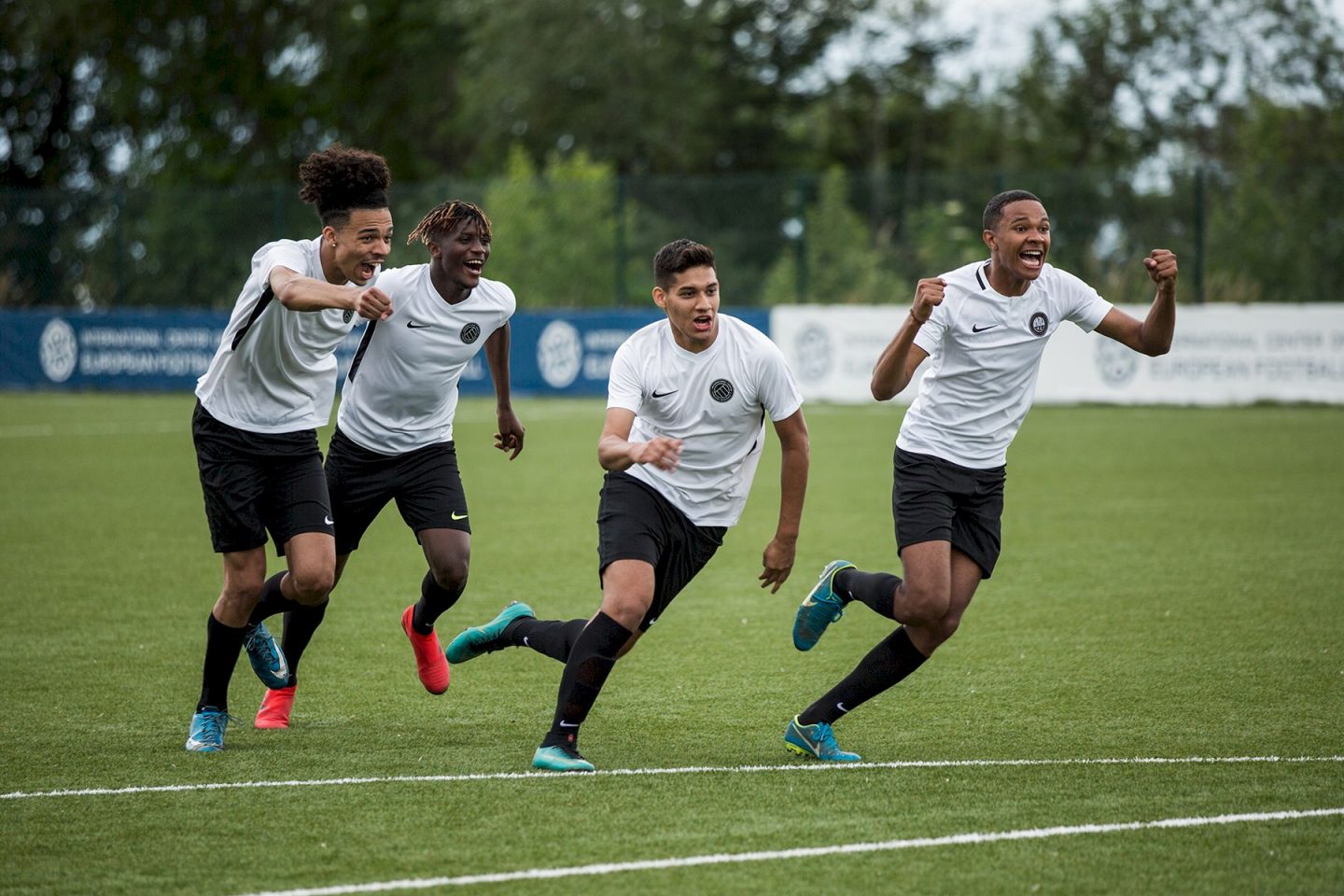
Ever wondered what makes German football academies so successful? These institutions are the backbone of Germany's football prowess, producing world-class talent year after year. From rigorous training regimens to state-of-the-art facilities, German football academies leave no stone unturned in their quest for excellence. But what really sets them apart? Is it the disciplined approach, the focus on youth development, or perhaps the innovative coaching methods? In this blog post, we'll uncover 25 fascinating facts about these academies that contribute to their unparalleled success. Whether you're a budding footballer, a coach, or just a fan, you'll find something intriguing in the world of German football academies.
Key Takeaways:
- German football academies have a rich history, producing legendary players like Franz Beckenbauer and Thomas Müller, and shaping the success of the national team.
- With state-of-the-art facilities and a focus on youth development, German football academies continue to produce top talent, inspiring other countries to adopt similar programs.
The History of German Football Academies
German football academies have a rich history that has shaped the sport in the country. These institutions have produced some of the world's best players and continue to be a cornerstone of German football.
- The first German football academy was established in 1950, setting the foundation for future training programs.
- In 2000, the German Football Association (DFB) revamped the academy system to focus on youth development.
- The DFB's Talent Development Program, launched in 2002, aimed to identify and nurture young talent across the country.
- German academies have produced legendary players like Franz Beckenbauer, Gerd Müller, and Miroslav Klose.
- The 2006 FIFA World Cup, hosted by Germany, highlighted the success of the revamped academy system.
Training and Development
German football academies are renowned for their rigorous training programs and emphasis on player development. These academies focus on both technical skills and personal growth.
- Players typically join academies at the age of 12, allowing for early identification and development of talent.
- Training sessions often include a mix of technical drills, tactical exercises, and physical conditioning.
- Mental toughness and discipline are key components of the training regimen.
- Academies emphasize the importance of education, ensuring players balance their studies with football.
- Many academies have partnerships with local schools to provide a comprehensive education for their players.
Facilities and Technology
State-of-the-art facilities and advanced technology play a crucial role in the success of German football academies. These resources help players reach their full potential.
- Most academies boast top-notch training grounds, including multiple pitches and indoor facilities.
- Cutting-edge technology, such as GPS tracking and video analysis, is used to monitor player performance.
- Nutritionists and sports scientists work closely with players to optimize their diet and fitness levels.
- Recovery facilities, including hydrotherapy pools and cryotherapy chambers, are available to aid in injury prevention and rehabilitation.
- Academies often have on-site medical staff to provide immediate care for any injuries.
Success Stories
German football academies have produced numerous successful players who have made significant impacts on both the national and international stages.
- Thomas Müller, a product of Bayern Munich's academy, has won multiple Bundesliga titles and a World Cup.
- Mesut Özil, who trained at Schalke's academy, became a key player for both Real Madrid and Arsenal.
- Manuel Neuer, another Bayern Munich academy graduate, is considered one of the best goalkeepers in the world.
- Toni Kroos, developed at Hansa Rostock and Bayern Munich, has won multiple Champions League titles with Real Madrid.
- Leroy Sané, who came through Schalke's academy, is now a star player for Bayern Munich and the German national team.
Impact on German Football
The influence of German football academies extends beyond individual players, shaping the overall success of German football on the global stage.
- The academies' focus on youth development has led to a steady stream of talented players for the national team.
- Germany's 2014 World Cup victory was largely attributed to the success of the academy system.
- The Bundesliga benefits from a strong academy system, with many clubs fielding homegrown talent.
- German academies have inspired other countries to adopt similar youth development programs.
- The continuous improvement of academy programs ensures that Germany remains a powerhouse in world football.
Final Kick
German football academies are more than just training grounds. They’re where young talents transform into world-class players. With a focus on discipline, tactics, and teamwork, these academies have produced legends like Miroslav Klose and Philipp Lahm. The rigorous training, combined with a strong emphasis on education, ensures that players are well-rounded individuals. From state-of-the-art facilities to experienced coaches, everything is designed to nurture potential. The success of German football on the global stage is a testament to the effectiveness of these academies. Whether you’re a budding footballer or just a fan, understanding the inner workings of these institutions gives you a deeper appreciation of the sport. So next time you watch a match, remember the hard work and dedication that started in these academies. It’s not just about the game; it’s about the journey to greatness.
Frequently Asked Questions
Was this page helpful?
Our commitment to delivering trustworthy and engaging content is at the heart of what we do. Each fact on our site is contributed by real users like you, bringing a wealth of diverse insights and information. To ensure the highest standards of accuracy and reliability, our dedicated editors meticulously review each submission. This process guarantees that the facts we share are not only fascinating but also credible. Trust in our commitment to quality and authenticity as you explore and learn with us.
